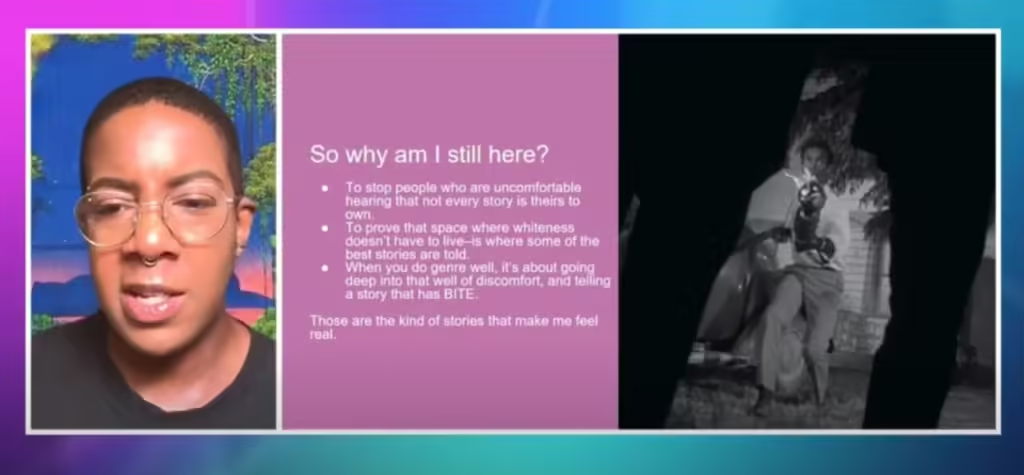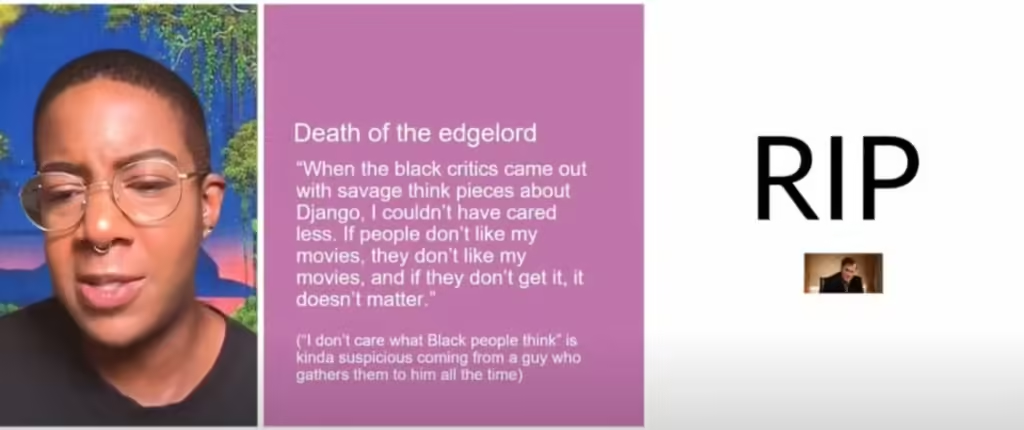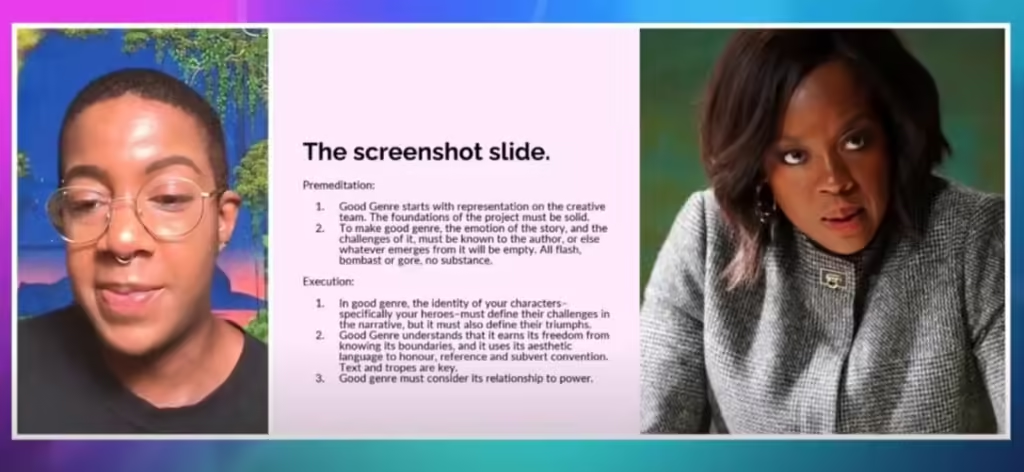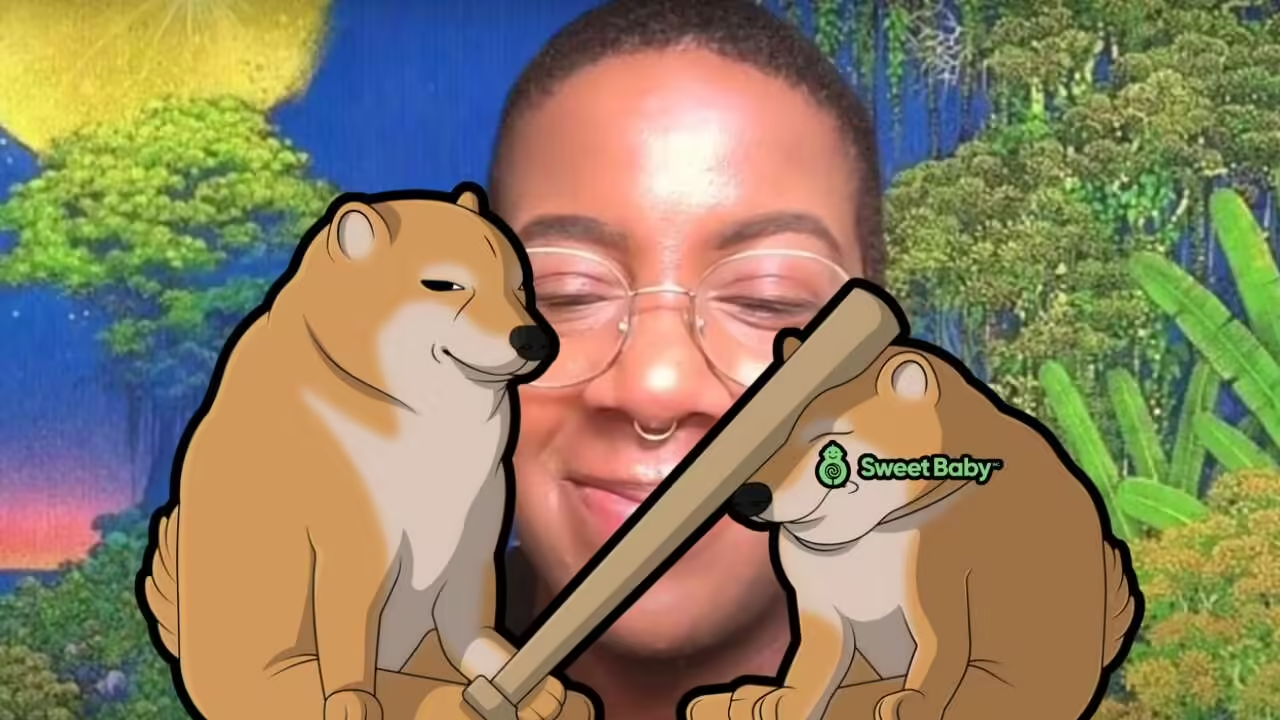Camerin Wild, a self-proclaimed non-binary narrative designer at Sweet Baby Inc., has sparked significant debate in the gaming community. At the Game Developers of Color Expo, Wild shared his vision of radically transforming the gaming industry, a vision that goes beyond merely creating more inclusive and representative content. His goal, as he stated boldly, is nothing short of “burning the games industry to the ground.”
This presentation, titled “How to Get Away With Murder Subverting Genre Expectations,” not only highlighted Wild’s work in game narrative design but also revealed his larger aspirations of dismantling established norms in the industry. Discovered by YouTuber Kirsche, Wild’s presentation quickly gained attention for its outspoken views on race, storytelling, and inclusivity in games.
Wild’s Introduction as a Sensitivity Reader and Narrative Designer
Wild, who has worked on prominent titles such as Tales of Kenzera: Zau, Suicide Squad: Kill the Justice League, Alan Wake II, The Crew: Motorfest, Kingdom Eighties, and God of War: Ragnarök, is no stranger to the video game industry. These high-profile projects have allowed him to carve out a name for himself as a narrative designer and sensitivity reader. In this capacity, Wild has not only contributed to storylines but has also taken on the responsibility of ensuring that the content aligns with modern societal values.
In his presentation, Wild asserted that stories are far more than entertainment. According to him, “The stories we tell each other are way more than entertainment. They are how we create debate and preserve our collective values and beliefs. And we can and should make better, more expansive, more representational content.” This is a central tenet of Wild’s philosophy — that storytelling in games is a powerful tool for shaping cultural norms and initiating important conversations.
The Space Where Whiteness Doesn’t Have to Live
One of the most provocative statements in Wild’s presentation came during a slide titled “So why am I still here?” In this section, he declared that his purpose was to demonstrate that “space where whiteness doesn’t have to live is where some of the best stories are told.”
This assertion builds upon the idea that traditional, mainstream narratives, often centered on white characters and perspectives, can limit the scope and depth of storytelling. Wild argues that by stepping outside of these conventions, game developers can craft richer, more inclusive stories that resonate with a broader audience.

He elaborated, saying, “A lot of us who are really fighting for more inclusive games and storytelling don’t have a choice when it comes to discomfort. A lot of us who are just existing don’t have a choice. Which makes this really hard often. But recently I started realizing that discomfort or the place where whiteness doesn’t have to live is where some of the best stories are told. And it’s where genre storytelling lives.” Wild’s point underscores the tension between comfort and creativity, suggesting that pushing beyond the familiar is key to creating truly impactful stories.
Wild’s Favorite Film and Its Influence on His Perspective
Wild’s unique perspective on storytelling is also informed by his love for Mel Brooks’ Blazing Saddles. During the presentation, he explained why this film holds a special place in his heart. While acknowledging the slapstick humor and crude jokes, Wild emphasized the film’s sharp social commentary. “The reason why I love it beyond some truly Mel Brooksian slapstick humor and fart jokes, Blazing Saddles is extremely aware of social inequality and finds its humor in that darkness, which means I can laugh in a way that is cathartic. It’s a movie that isn’t making jokes about me, but for me. And I think that’s really awesome,” Wild explained.
What makes Blazing Saddles stand out for Wild is its intentional targeting of societal power structures, particularly whiteness. He praised Brooks for working with black writers to ensure that the film’s humor was directed at dismantling these structures, rather than perpetuating harmful stereotypes. According to Wild, “It’s deliberately and unexpectedly a narrative that contributes to the liberation of people like me. It isn’t respectful. It’s offensive. But, yeah, it offends the right people, which is to me the point of truly incisive, intentional genre work.”
The Problem with Quentin Tarantino’s “Django Unchained”
In contrast to his admiration for Blazing Saddles, Wild was critical of Quentin Tarantino’s Django Unchained, using it as an example of storytelling that, in his view, misses the mark. While acknowledging Tarantino’s attempt to explore uncomfortable themes, Wild argued that his approach is superficial and lacks emotional depth. “So a context-free version of art is supposed to make people uncomfortable. As an auteur, Quentin Tarantino feels like someone who grasps after edginess when they don’t really have any human tragedy to explore the depths of. They don’t understand that growth comes from trauma, sure, but it also comes from joy,” Wild stated.

Furthermore, Wild asserted that Tarantino’s work is rooted in “white supremacist patriarchal values,” suggesting that his portrayal of violence and suffering is exploitative rather than insightful. For Wild, the problem isn’t just that such stories are insensitive — it’s that they are, in his words, “bad.” This highlights Wild’s belief that truly meaningful storytelling must do more than shock; it must resonate on a deeper emotional and cultural level.
Wild’s Call for Radical Change in the Gaming Industry
At the core of Wild’s message is a call for radical change in the gaming industry. His desire to “burn the games industry to the ground” reflects his belief that incremental change is insufficient. For Wild, the existing structures and conventions within gaming are inherently flawed and need to be dismantled to make way for more inclusive, diverse, and representative stories.

This vision extends beyond just increasing the number of non-white, non-male characters in games. It involves rethinking the very foundations of how stories are told, who tells them, and which perspectives are centered. Wild’s critique of the industry suggests that, in his view, many of the stories being told today fail to challenge the status quo and instead reinforce harmful power dynamics.
Wild’s presentation at the Game Developers of Color Expo offers a glimpse into the future of storytelling in games, as he envisions it. For Wild, the key to meaningful storytelling lies in discomfort — in pushing beyond familiar, comfortable narratives and embracing stories that challenge societal norms and expectations. This involves not only greater inclusivity in terms of race, gender, and identity but also a willingness to critique and dismantle established power structures.
So how about you? Do you want his vision influencing the future of gaming industry?

